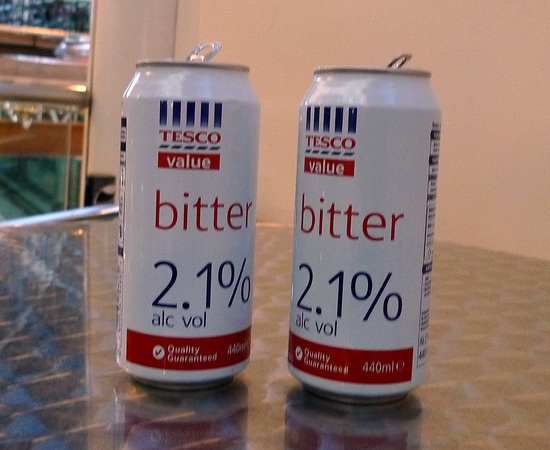Many of us are still feeling the squeeze of economic pressure, despite the fact that by the end of 2012 we were out of the recession. Christmas put a sizeable dent in many wallets and New Year added a financial headache on top of one caused by too much partying. Now that January has arrived, the focus for most families will be saving and cutting luxuries until the financial status of 2013 has been properly established – probably beginning with the first trip to the supermarket this year.

Unfortunately, budgeting on your grocery shop may prove to be harder than you think, as some of Britain’s biggest supermarket chains have bumped up the prices of items in their own brand ranges by as much as 110 per cent.
During the recession, many consumers chose to forego branded labels for the cheaper own label alternatives offered by the majority of grocery retailers in the UK. These products have, over the years, been improved and had a higher focus on quality placed upon them in order to entice shoppers into placing them in their baskets.
Yet these improvements often come at a cost, especially when a range is rebranded as was the case for Tesco’s own label products back in 2012. However, supermarkets will wish to continue to pour funds into making these products as appealing as possible, as the profit margin on own labels for them is much higher than the earnings they take from branded goods.
As a result of multiple factors, including the wet weather yielding poor harvests in summer and the rate of inflation fluctuating, more than 40 per cent of own label ranges sold in UK supermarkets increased in price in 2012, with the mark-up of 20 per cent or more being much higher than increases upon branded goods on average.
According to mySupermarket.com, own brand ranges have posted the largest price rises, contributing to the own label becoming one of the most profitable annual categories in grocery retailing. Clearly, though, while supermarkets are profiting greatly from this, hard up consumers are beginning to struggle with even basic ranges.
Own brand ranges tend to stock the items that consumers most need at prices they can afford on a tight budget – fruit, vegetables, dairy products and meat all usually have cheaper options available in the supermarket.
Yet retail analysts BrandView.co.uk have pointed out that, in making quality improvements or rebranding ranges, supermarkets have begun to close the price gap between branded goods and own label alternatives.
For example, 43.3 per cent of items in the Tesco Everyday Value range costs a higher amount than could be found in the Tesco Value range only last year. There was a similar story at rival Sainsbury’s stores, where 41 per cent of their Basics range had increased in price.
Asda was the only UK supermarket chain which dropped more prices than it increased, with 73 items going up in cost and 85 of the products in its Smartprice brand being marked down.
A spokesperson for Tesco admitted that “rising costs and food inflation mean some products have increased in price slightly” – although she also highlighted that the majority of products in the Everyday Value range had remained at the same price from a year before.
She added; “Since its re-launch in April, nearly 80 per cent of our customers have bought from the Everyday Value range.”
Meanwhile, as Sainsbury’s spokesman said; “72 per cent of our customers buy Basics and enjoy Sainsbury’s quality at surprising prices.”
Yet with the financial future of the UK still uncertain and the festive season leaving a lot of light wallets around the country, a price hike in own labels could come as a blow to many households around the country. Consumers will no doubt be crossing their fingers that this year proves to be more profitable than the last four, returning Britain to growth once again before economic troubles get too much for families nationwide.
Do you think supermarkets should be prioritising quality over low prices at a time when many consumers cannot afford to buy even the most basic luxuries, or will improving own brand ranges work out for the best for consumers in the long run? Will you be focusing mostly on own label products in your first weekly shop of 2013, or did you manage to save enough over the festive season to enjoy a little luxury or two before returning to work?
Previous Post
Would You Lie on Your CV to Improve Employment Chances?